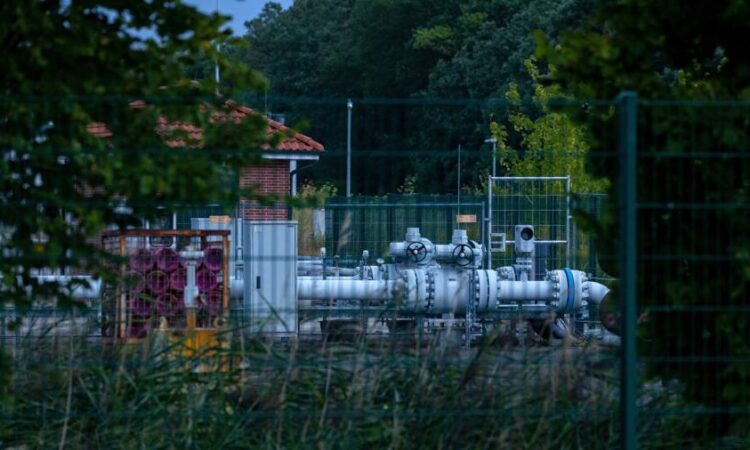
More deals in Europe’s €4tn natural gas derivatives market have moved off-exchange since Russia’s full-scale invasion of Ukraine as squeezed companies try to save trading costs, the European Union’s securities watchdog has warned.
A report on Friday by the European Securities and Markets Authority found the share of trades on the opaque over-the-counter market had jumped from 15 per cent last summer to 27 per cent this year, shifting from the regulated futures exchanges.
The agency said the change had been driven by energy groups and may have been linked to a push to save the margin used for trading. Producers and traders that rely on futures markets to hedge against volatile price moves and lock in supply months in advance were last year loaded with sharply rising demands for margin.
The prices of gas in Europe rose to record levels following Russia’s invasion and were exacerbated by scorching temperatures. The European benchmark TTF started the year at about €90 per megawatt hour, but in the summer traded at more than €300/mwh, and ended the year at about €75/mwh. Prices have fallen further since the start of the year, on Friday touching €32.25/mwh, as European storage is filled with an unusually high amount of gas for this time of year.
However, the margin payments, demanded by exchanges as insurance to secure deals, more than doubled in 2022, according to the European Central Bank. That forced many companies to draw on credit lines with their banks, seek emergency funds and conduct more trades privately, where margin requirements are lower.
The EU also brought in a cap on the price of gas traded on exchange but exempted the over-the-counter market. Analysts had warned last year, when the EU was drafting the price cap, that trading would migrate to over-the-counter markets.
While most trades are still being conducted on exchanges, the shift to OTC “raises concerns due to more limited transparency and more bespoke margin and collateral requirements in that market segment”, Esma said.
The volatile market pushed annual turnover of natural gas derivatives on EU futures exchanges to €4.1tn last year, with open positions of EU companies amounting to about €500bn, the authority said.
However, it also found the market was becoming increasingly concentrated as funds exited and left banks and energy companies as the main traders. “Some energy firms hold relatively large derivative positions,” Esma found.
The EU has warned that its price cap could be pulled if too much trade moves to over-the-counter deals that are “less transparent, less subject to regulatory scrutiny, and carrying greater risks of defaulting on obligations for the parties involved”.
Intercontinental Exchange, which operates the main trading hub for gas in the EU, opened a gas contract in London as insurance against disruptions in the EU market, but few traders, apart from a few early tests, have made much use of it.





